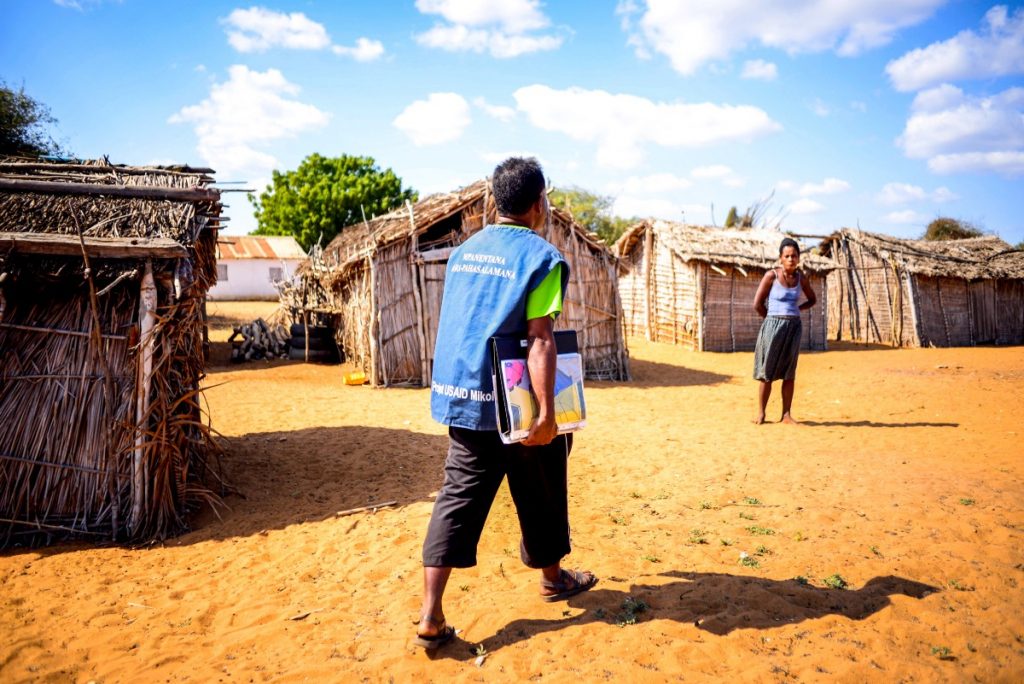The entire population of Madagascar is at risk for malaria, and severe malaria is among the top five causes of death in the country, especially among young children, for whom the disease is a major killer of Malagasy children under five years of age. In this age group the national mortality rate is 7 percent, though this rate varies throughout Madagascar’s 22 regions; ranging from less than 1 percent in the central highlands to almost 11 percent in the coastal regions. Malaria disproportionately affects the poorest and least-educated families and is far more common in remote, rural areas than in urban and peri-urban areas. However, malaria is entirely preventable through simple, low cost measures. It is also curable, especially when diagnosed early and promptly treated.
The United States Agency for International Development (USAID) Mikolo Project, implemented by Management Sciences for Health (MSH) and funded through the U.S. President’s Malaria Initiative (PMI), supports over 6,800 community health volunteers (CHVs), and works towards helping eliminate malaria in Madagascar through awareness raising, prevention, treatment, and epidemiologic surveillance. CHVs are on the frontlines of this effort, saving the lives of thousands of people in villages across Madagascar.
Read the full story at Medium

